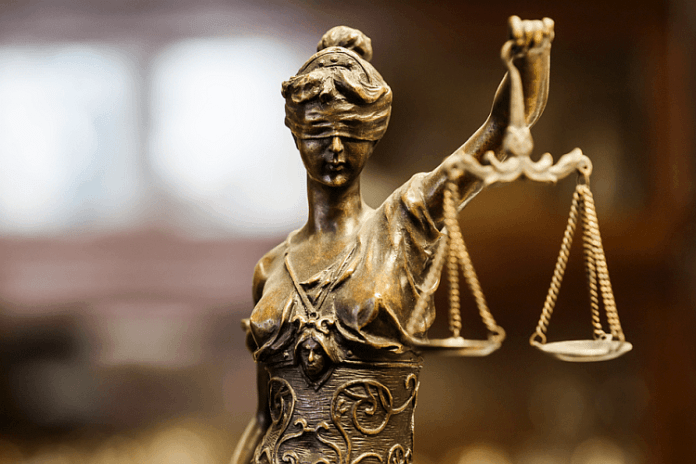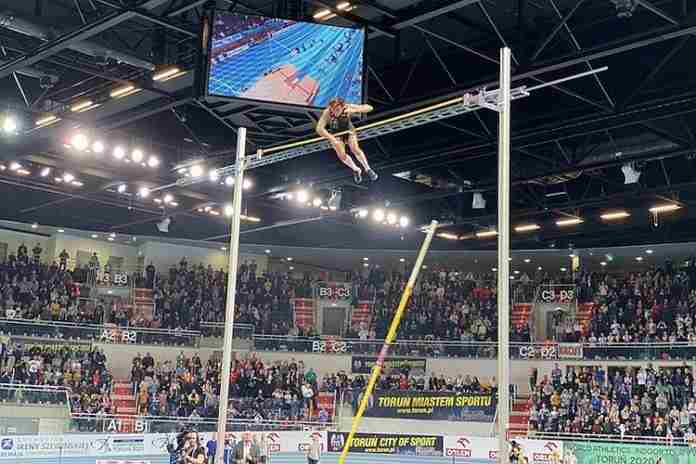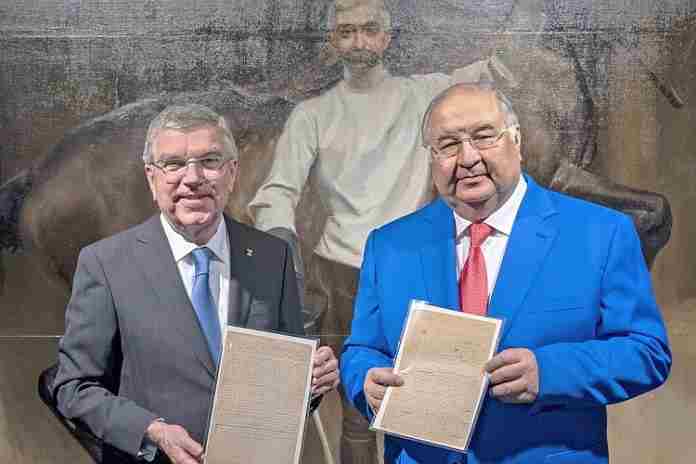While the Tokyo organizers fret about the potential impact of the expanding coronavirus threat to this summer’s Olympic Games in Japan, discussions about the International Olympic Committee’s guidelines on protests are spreading among athletes.
There are lots of voices, but one of those worth listening to closely is Edwin Moses, the two-time Olympic gold medalist in the 400 m hurdles and universally respected as one of the most thoughtful people on sport and culture.
Speaking with CNN a couple of weeks ago, Moses said:
“Now the athletes have so many resources, social media resources and so many ways that they can activate their brand, I think the IOC is really trying to tap down on their activities, which is going to be impossible to do.
“It’s probably going to happen. I think that there’s going to be athletes that figure this is my chance to, you know, perform and if I get to the podium, I’m going to do what I want to do and express the feelings that I want to express. It’s got to be impossible to stop.”
He’s completely right about that. But that’s not the end of the story, but only the beginning.
His reference is to the IOC’s Rule 50 Guidelines, developed by its Athletes’ Commission and posted in early January. Its preamble lays out the reasons for the document, including:
“We believe that the example we set by competing with the world’s best while living in harmony in the Olympic Village is a uniquely positive message to send to an increasingly divided world. This is why it is important, on both a personal and a global level, that we keep the venues, the Olympic Village and the podium neutral and free from any form of political, religious or ethnic demonstrations.”
Contrary to some comments, these guidelines actually narrow the areas of protests or demonstrations to four areas at Olympic venues only:
(1) “On the field of play”
(2) “In the Olympic Village”
(3) “During Olympic medal ceremonies”
(4) “During the Opening, Closing and other official ceremonies”
Moreover, the guidelines specifically approve of “the opportunity to express their opinions” during interviews – including at the competition sites in the post-event Mixed Zone areas – and on media platforms of any kind.
This obviously includes U.S. fencer Race Imboden’s kneeling during the victory ceremony for the Team Foil event at the Pan American Games in Lima (PER) last year, or Gwen Berry’s raised fist during her victory ceremony for the women’s hammer there. But it also applies to Australian Freestyle star Mack Horton’s refusal to take the victory stand after the 400 m Freestyle final at the FINA World Championships in protest of China’s Yang Sun – the winner – who Horton felt was guilty of doping and let off by the Chinese swimming federation and FINA. (The World Anti-Doping Agency filed an appeal of these rulings vs. Sun and the decision is expected soon.)
The CNN story and others that followed all focused on American soccer star Megan Rapinoe, who has promised to speak out on issues she cares about, such as equal pay and playing conditions for the U.S. Women’s National Team.
So they protest. What then?
The Rule 50 Guidelines are clear and vague at the same time:
“If an athlete or participant is in breach of Rule 50 and the Olympic Charter, each incident will be evaluated by their respective National Olympic Committee, International Federation and the IOC, and disciplinary action will be taken on a case-by-case basis as necessary.”
So there might be consequences and there might not be. But if the IOC reacts as it did with Tommie Smith and John Carlos in 1968, and Vince Matthews and Wayne Collett in 1972 – with disqualification – it may very well be on solid ground.
The knee-jerk reaction of many Americans, for whom free speech is a cherished right under the First Amendment to the U.S. Constitution, is that just about anything can be done. But there are limits, especially for non-governmental actors such as the IOC, that will allow post-protest punishments such as those that Smith, Carlos, Matthews and Collett received.
As the IOC is a European body, headquartered in Switzerland, the law of the European Union has to be consulted first. An excellent review of the applicable statutes, compiled in 2019, notes that the guarantee of freedom of expression in Europe rests on the 1950 European Convention on Human Rights, which includes:
● “Everyone has the right to freedom of expression” but also
● “The exercise of these freedoms, since it carries with it duties and responsibilities, may be subject to such formalities, conditions, restrictions or penalties as are prescribed by law
and are necessary in a democratic society, in the interests of national security, territorial
integrity or public safety, for the prevention of disorder or crime, for the protection of
health or morals, for the protection of the reputation or rights of others, for preventing
the disclosure of information received in confidence, or for maintaining the authority and
impartiality of the judiciary.”
The key phrase in that long second sentence is “for the protection of the reputation or rights of others” and that is where the IOC’s emphasis is. Its view, as detailed in its Rule 50 guidelines, essentially state that a protest or demonstration on the field of play, in the Village or during ceremonies, demeans the Games and disrupts the rights of other athletes to have a pristine Olympic experience.
Ridiculous, you say? Then you didn’t hear the comments of athletes at the IOC’s International Athletes Forum in Lausanne last year, where multiple questions were asked about why some athletes were unhappy with the Rule 40 restrictions on advertising. While this is a major issue for North American, European and Oceanic competitors seeking personal sponsors, there are many others whose income, training support and travel are paid for by their governments and are happy enough to be able to compete while making a reasonable living in their home country.
Those considering protests should not underestimate IOC President Thomas Bach – an Olympic gold medalist in team fencing for West Germany in 1976 – and a long-time lawyer himself. The Rule 50 Guidelines were very carefully drafted to narrow the areas where protests would be restricted, with an eye toward future tests before the Court of Arbitration for Sport.
Even Bach’s sometimes nemesis Dick Pound of Canada, himself a serious, highly-respected lawyer in Montreal and the senior member of the IOC, noted in a widely-reproduced column on Sunday (9th) that
“The IOC fully agrees with that principle and has made it absolutely clear that athletes remain free to express their opinions in press conferences, in media interviews and on social media. But, in a free society, rights may come with certain limitations. Rule 50 restricts the occasions and places for the exercise of such rights. It does not impinge on the rights themselves. Many other governmental and sporting organizations have similar rules restricting demonstrations. Remember, too, that allowing protests on the podium means accepting all protests, not just those with which you may agree.”
He added, importantly, “But the principles that give rise to the Games can illuminate a way forward that integrates fundamental humanistic values. Avoiding vengeance, especially misguided vengeance, is an admirable beginning.”
So if Imboden, Berry, Horton or Rapinoe want to make a scene during their victory ceremony, no one is going to stop them. But the blowback afterwards may end their Olympic careers, with the decision to be confirmed by the Court of Arbitration for Sport.
And as the discussion at the International Athletes Forum in 2019 showed, while the IOC may be booed by some from U.S. and Europe, there will be many others from elsewhere who will ask why anyone has the right to spoil their Olympic experience.
In his CNN interview, Moses explained “I think it’s a very personal individual choice to have to make. I was not a fan [of protesting] mainly because of what happened 40 years ago, the boycott of the Olympic Games in Moscow.” But while he agreed with what Smith and Carlos did as a personal choice, that doesn’t mean that he would do the same.
That balance in judgement is not normally part of the mindset of an activist. But the IOC is telling athletes and their entourage it needs to be, at least on the field of play, in the Village and on the victory stand.
Rich Perelman
Editor

























